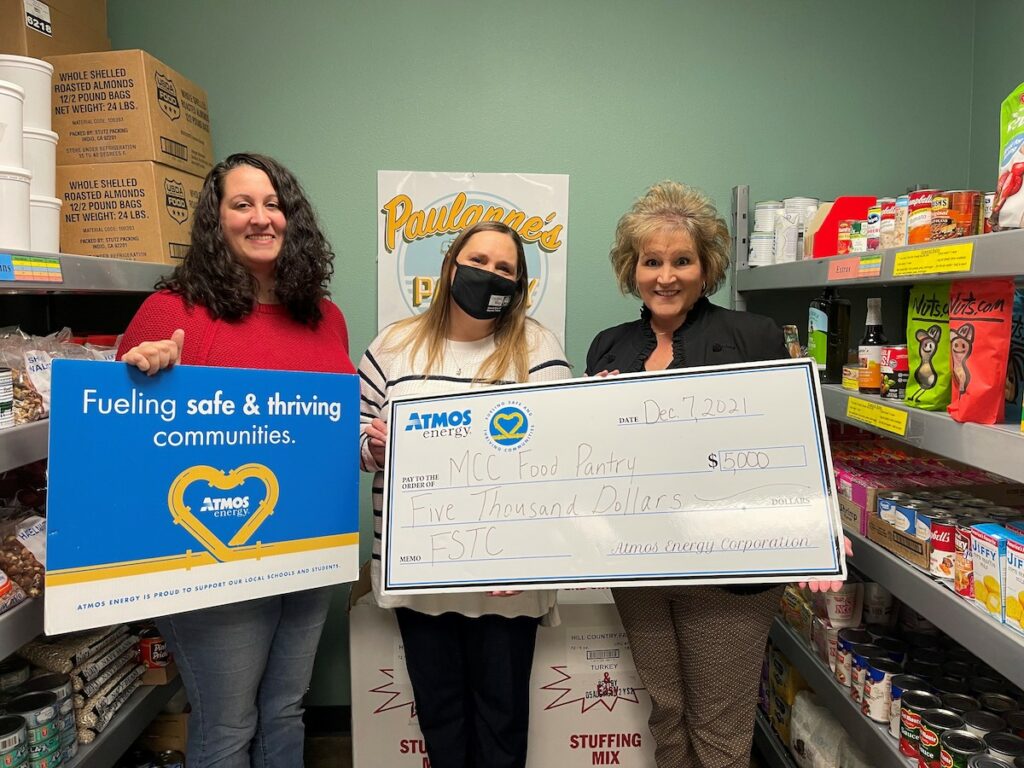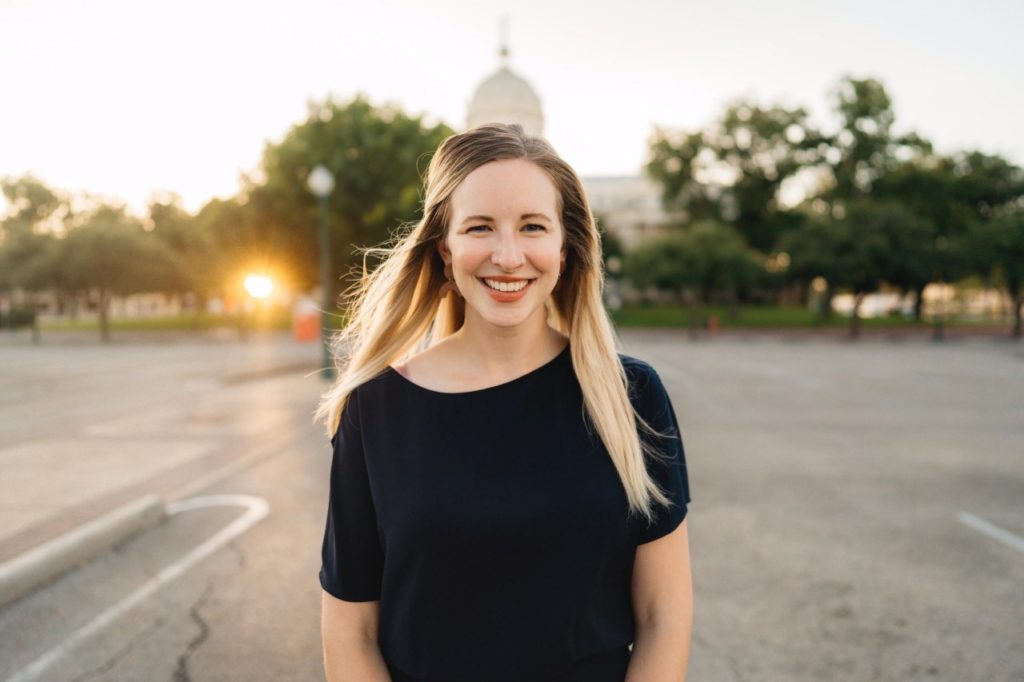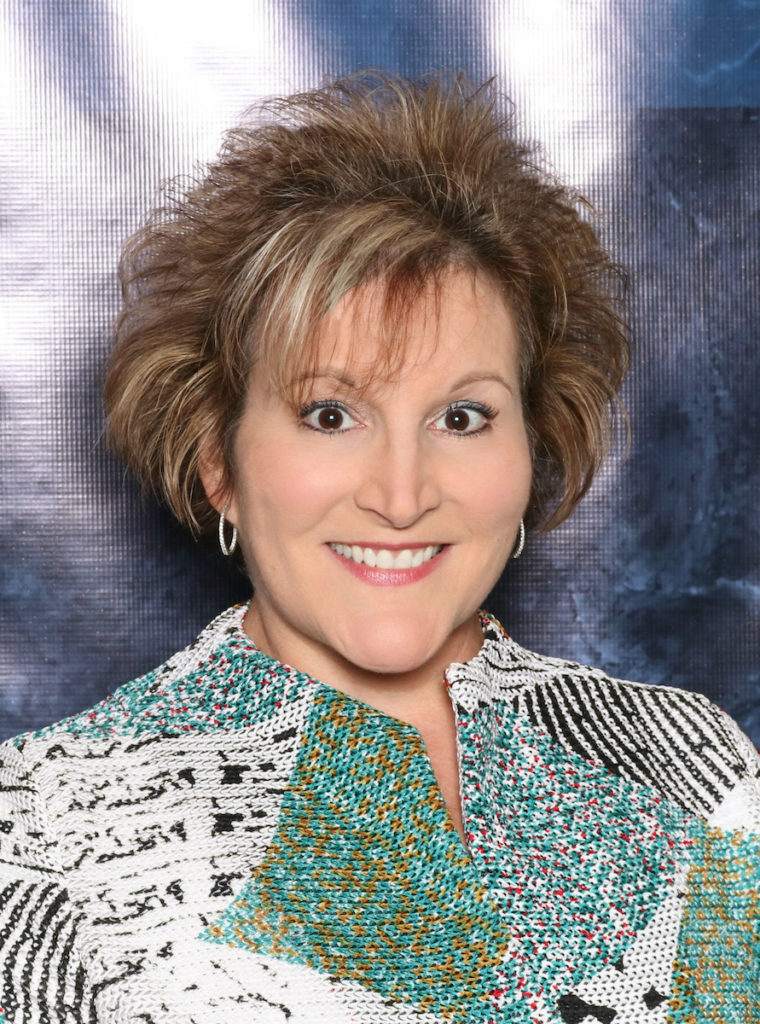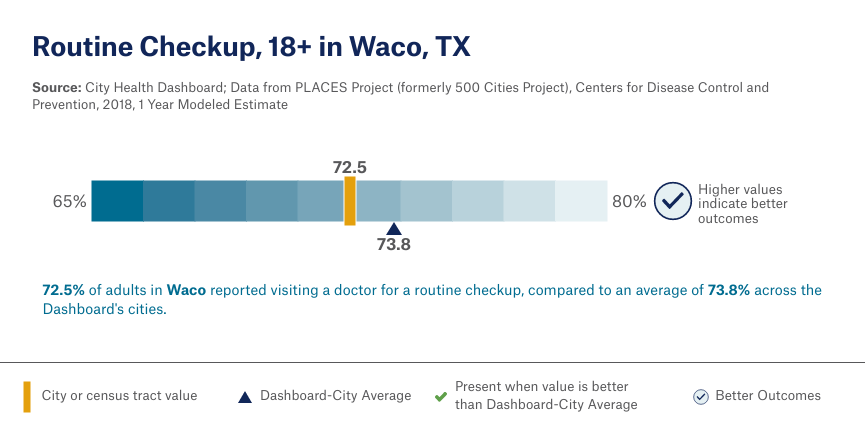By Ferrell Foster
Waco may be on the verge of greatness. This thought came to me this morning as I reflected on two true things — our town seems to be facing the reality of its high poverty rate, and we also seem to be taking the arts seriously.
It may seem odd to tie these two things together, so let me try.

No city can be great when such a high percentage of its population lives in poverty. There is all kinds of data to prove this point, but you can also drive into certain parts of town and convince the other side of your brain of this truth.
The poor will always be with us, as someone famous once said, but that did not prevent him from caring deeply and working on behalf of the poor. That guy’s name was Jesus, and people are still talking about him, even worshipping him, 2,000 years later.
So, yes, there will always be people who live in poverty, but that doesn’t mean the rest of us shouldn’t work our tails off helping as many as we can. We help them in the short term by dealing with basic needs (food and shelter), but the most important help comes in the form of education and job training — things related to earning a liveable wage. A minimum wage job cannot support anyone adequately unless they are living with someone else.
And, by the way, our very best schools should be in our very poorest neighborhoods. That’s where it is most needed. But, in Texas, we have the opposite. The best schools are usually in wealthier neighborhoods. Education takes money, even though some don’t like to admit it. Those same people often pay more for housing or private schools for that very reason — it takes money to educate children while parents are working elsewhere.
The other side of this coin is promotion of the arts. This is not often understood as intuitively as the other. We are so enmeshed in a capitalist society that we can easily think business and money-making are the most important parts of building a community. Business and money-making are essential, but addressing poverty and promoting the arts is equally important.
Why the arts? This sector is much like the spiritual sector (of which we already have great strength). Both promote a connection to truth and concerns beyond oneself, and when we connect to deeper Realities we generally become more attuned to the people around us, or we should. Sometimes American religion can be very self-centered (as in “my” salvation) and undermine broader concern, but Christianity and other religions lift love of neighbor to equal footing with love of self. Self-esteem is good (you are created in the image of God), but neighbor-esteem is just as important (they are created in that same image).
More than 100 years ago, Evelyn Underhill understood the connection between spirituality and art. Artists, she said, are “aware of a more vivid and more beautiful world” than other people. They are “always driven by their love and enthusiasm” to express before others “those deeper significances of form, sound, rhythm, which they have been able to apprehend.”
Artists can do this because “they taste deeper and deeper truths, make ever closer unions with the Real. For them, the duty of creation is tightly bound up with the gift of love,” Underhill wrote.
This is why we need artists, just as surely as we need preachers. They help us to connect with the broader realities that many of us identify as God, while others identify it in other ways. This makes, or should make us, better neighbors. And better neighbors make better towns.
And, by the way, the creativity of the artistic mindset can be financially profitable, as well. For proof of this look no further than our very own Joanna Gaines. Joanna’s creativity with Chip’s business sense as built something important that is benefiting many.
Almost 30 years ago, the band Jars of Clay recorded a song titled “The Art in Me,” which included these lyrics:
“Sculpting every move
You compose a symphony
And you plead to everyone
See the art in me
See the art in me
See the art in me.”
(Songwriters: Charlie Lowell / Dan Haseltine / Matthew Ryan Bronleewe / Stephen Daniel Mason)
May we see the art in each other and work to help each other, both in our struggles and in our art.
Ferrell Foster is senior specialist for care & communication with Prosper Waco. He is also on the Board of Directors of Act Locally Waco and a regular contributor to the blog.
The Act Locally Waco blog publishes posts with a connection to these aspirations for Waco. If you are interested in writing for the Act Locally Waco Blog, please email the ALW team — [email protected].
Atmos Energy recently donated $5,000 to the McLennan Community College Foundation to help support Paulanne’s Pantry, the MCC food pantry.

“This gift will do so much to help us serve students who are working hard to support themselves or a family while they attend college,” said Kim Patterson, the foundation’s executive director. “Hunger is a real issue on college campuses, especially at community colleges where many students live perilously close to the edge of financial security. We are incredibly grateful to Atmos Energy for their commitment to support our students.”
The gift will enable MCC’s pantry to provide meals for up to 200 students because of the pantry’s supply partnership with the Central Texas Food Bank, according Natalie James, Completion Center associate director. Students who access the pantry are typically limited to one visit per month and are provided with coaching to help with accessing other community resources. Each pantry visit provides enough food for three meals for a family.
Paulanne’s Pantry was named in honor of Waco resident Paulanne Ream Hoover, who left a gift to the MCC Foundation in her estate plan. This gift funded an endowment to cover basic costs of pantry operations, as well as establish the first scholarship fund for part-time students at the college.
The MCC Foundation raises public and private support to fund scholarships, faculty and staff professional development, emergency aid and capital needs at the college. To learn more, visit www.mclennan.edu/foundation or contact Patterson at 254-299-8606 or [email protected].
The Act Locally Waco blog publishes posts with a connection to these aspirations for Waco. If you are interested in writing for the Act Locally Waco Blog, please email Ferrell Foster.
By Kelly Palmer
The Ultimate Waco Gift Guide. Y’all asked for a citywide holiday gift guide featuring beloved small businesses, so you know I had to deliver!
This year’s edition is an Enneagram Gift Guide, and each type offers three gift ideas featuring small businesses owned and operated by our neighbors. Price points are from $10 to $100, so you can find something for everyone on your list. All of the businesses highlighted here are locally owned, and the majority are also owned by women and/or people of color, with a few social enterprises, as well. Let’s #shopwaco and #shoplocal this holiday season.

Gifts for the Enneagram 1: The Reformer
Enneagram Ones are conscientious and ethical, with a strong sense of right and wrong. They are teachers, crusaders, and advocates for change: always striving to improve things, but afraid of making a mistake. Well-organized, orderly, and fastidious, they try to maintain high standards.
Custom stationary from January Letter Press makes a great gift in helping them stay organized and professional looking.
Keeping a clean and organized home is hard, especially during the holidays, but a cleaning from SWEEP will sweep them off their feet! This is an especially good present if their love language is Acts of Service.
An Enneagram One also strives to have a perfect tree and decorations from World Cup Cafe and Fair Trade Market are a great way to achieve that.

Gifts for the Enneagram 2: The Helper
Enneagram Twos are empathetic, sincere, and warm-hearted. They are friendly, generous, and self-sacrificing, but can also be sentimental, flattering, and people-pleasing. They are well-meaning and driven to be close to others, but can slip into doing things for others in order to be needed.
A Five Pack of classes from Yoga8 can help them take care of themselves instead of focusing on helping others. Since they are so used to caring for others it will mean a lot to them that you are helping them care for themselves.
A bouquet from Bloom Waco will also remind them how good it feels to be cared for and will be a lovely gift that is about them.
Since an Enneagram Two takes joy in helping others, they will love having a nice piece that makes it easier for them to celebrate themselves and others. This cake stand from Harper Design Co takes the cake on cake stands. This is an especially good present if their love language is Quality Time.

Gifts for the Type 3 Enneagram: The Achiever
Enneagram Threes are self-assured, attractive, and charming. Ambitious, competent, and energetic, they can also be status-conscious and highly driven for advancement. They are diplomatic and poised, but can also be overly concerned with their image and what others think of them.
A unique piece of art from local artist Christal Peterson will help any Type Three make sure their home or office stands out.
Alchemy Jewelry House features sterling silver and gold plated pieces that will ensure your Type Three is impressing everyone around them.
A bottle of Frisant Wine from Waco Wine Shoppe will be a great way for your Type Three to impress their guests at their next dinner or party.

Gifts for Type 4 Enneagram: The Individualist
Type Fours want to express themselves and their individuality, to create and surround themselves with beauty.
A Custom Hat from Virgo & Co is a one-of-a-kind piece that will make them feel seen.
Leather Journals from MC Art Supplies are the perfect way to give your Type Four their main character moment. Are they writing a novel or a grocery list? Who cares? They look cool doing it.
Bring out your inner Cha-rista with Matcha powder from Cha Community and let your Type Four custom make their drinks exactly the way they like them. (Formerly known as Waco Cha).

Gifts for Type 5 Enneagram: The Investigator
Enneagram Fives are alert, insightful, and curious. Type Fives want to possess knowledge, to understand the environment, to have everything figured out. They are able to concentrate and focus on developing complex ideas and skills. Independent, innovative, and inventive, at their best they are visionary pioneers, often ahead of their time, and able to see the world in an entirely new way.
A bottle of Malt Whiskey from Balcones Distilling will get their curiosity and creativity flowing.
Topographical Tumblers from Black Oak Art are unique, interesting pieces of art that will spark joy.
A trip to Central Goods will be like a trip to Disney for Enneagram Fives.

Gifts for Type 6 Enneagram: The Loyalist
The committed, security-oriented type. Sixes are reliable, hard-working, responsible, and trustworthy. Excellent “troubleshooters,” they foresee problems and foster cooperation. Type Sixes want to have security, to feel supported by others, to have certitude and reassurance, to test the attitudes of others toward them, to fight against anxiety and insecurity.
A Waco Hat from Waco Hat Company will help them show off their hometown pride!
Type Sixes can be overthinkers and a hand-poured candle from Symphony Candle Co will help them relax and live in the moment!
Type Sixes love to solve problems and this puzzle from Fabled Bookshop will speak to their inner problem solver while in a way where they can relax and have fun.

Gifts for Enneagram Type 7: The Enthusiast
Enneagram Sevens are extroverted, optimistic, versatile, and spontaneous. Playful, high-spirited, and practical. They want to have fun and fear missing out on things that will be fun.
A Family Cameron Park Zoo membership is the perfect activity for Enneagram Sevens because it is fun and interactive. With a membership they can easily go anytime they feel like being spontaneous because there’s not a lot of planning involved.
Life is like a box of chocolate and these chocolates from Splendid Oaks will be a fun way for your type Seven to enjoy delicious chocolate in a way that feels like a mini adventure.
These retro earrings from The Black Daisy will make any outfit more fun!

Gifts for Type 8: The Challenger
Enneagram Eights are self-confident, strong, and assertive. Protective, resourceful, straight-talking, and decisive. Type Eights want to be self-reliant, to prove their strength and resist weakness, to be important in their world, to dominate the environment, and to stay in control of their situation.
Axe Throwing at Waco Axe Company is the perfect way to demonstrate strength and control in a way that’s fun for everyone.
This bag from Wildland will help your Enneagram Eight keep everything together and under control in the most fashionable way.
Meal Prepping is so good for you but it can be extremely time consuming and overwhelming. Help your Enneagram Eight take control of their health and make sure they’re easting well to stay strong. This is an especially good present if their love language is Acts of Service.

Gifts for Enneagram Type 9: The Peacemaker
Enneagram Nines are accepting, trusting, and stable. They are usually creative, optimistic, and supportive, but can also be too willing to go along with others to keep the peace. They want everything to go smoothly and be without conflict. At their Best: indomitable and all-embracing, they are able to bring people together and heal conflicts.
This hoodie from Clasé Vintage Goods is the perfect way to make everyone know their deepest desire is to see everyone happy!
The Winter Nourishing Gift Set from Lovely Enterprises is the perfect way to show your Enneagram Type 9 that you understand their desires of bringing peace by supporting a great local nonprofit that supports women who are survivors of abuse.
Coffee from Be Kind Coffee is the best way for your Enneagram 9 to start their morning off on the right foot and to remind them above all to just be kind.

Kelly Palmer is a licensed social worker, educator, and member of the Waco City Council.
The Act Locally Waco blog publishes posts with a connection to these aspirations for Waco. If you are interested in writing for the Act Locally Waco Blog, please email Ferrell Foster.
Travelers in the Waco area will be able to enroll in the Transportation Security Administration’s popular TSA PreCheck program at Waco Regional Airport Dec. 6-10.
The airport is a convenient location to sign up for the program that enables enrolled travelers to “Travel with Ease” with an expedited security screening process. The pop-up office will be in the lobby of the terminal in the baggage claim area.
The application process allows U.S. citizens and lawful permanent residents to enroll directly in TSA PreCheck — an expedited screening program that allows travelers to leave on their shoes, light outerwear, and belt, keep their laptop in its case and their 3-1-1 compliant liquids/gels bag in a carry-on, in select TSA airport checkpoint screening lanes. More than 200 airports participate in TSA PreCheck program nationwide.
Visit the TSA PreCheck website at tsa.gov/precheck to register and schedule an appointment for the upcoming enrollment event. Applicants must bring proof of identity and U.S. citizenship. Eligible documents include a current U.S. passport, or driver’s license and a copy of their birth certificate. The enrollment process must be completed in person at the enrollment location for the proper paperwork and fingerprints to be collected.
The application fee is $85 and can be paid during the enrollment appointment with either a credit card, money order, company check, or certified/cashier’s check. Cash or personal checks are not accepted.
After completing enrollment, successful applicants will receive via U.S. mail within two weeks a Known Traveler Number that is valid for five years. The enrollee should enter the provided KTN in the “Known Traveler Number” field when booking airline reservations. The KTN also can be added when booking reservations online via a participating airline website, via phone call to the airline reservation center, or with the travel management company. Additionally, the KTN can be entered in participating airline frequent flyer profiles as well.
The Act Locally Waco blog publishes posts with a connection to these aspirations for Waco. If you are interested in writing for the Act Locally Waco Blog, please email Ferrell Foster.
MCC Foundation Executive Director Kim Patterson has been named “Outstanding Fundraising Professional” by the Central Texas Chapter of the Association of Fundraising Professionals.

Patterson has served in a variety of roles at McLennan Community College for 26 years and began her role as executive director of foundation in January 2017. She served as associate director of the Foundation 2006-2013.
Since becoming executive director, the foundation has raised an average of $1.3 million in private donor support each year, in addition to numerous grant awards. Patterson has successfully navigated complex capital and real property gifts, estate gifts, major gifts for scholarships and capital projects, and she has established major endowments to support student success.
MCC Foundation assets under management have increased from $16.2 million in 2016 to more than $32 million as of August this year.
Aside from fundraising success, the foundation has implemented creative donor stewardship efforts, including refining the Scholar, Donor, and Alumni Appreciation event to provide intentional connection between major donors and their scholarship recipients. Even during the pandemic, revenue from the Foundation’s Hearts in the Arts Gala and Golf Classic reached new fundraising records.
In 2018, the MCC Foundation was named a “Charity Champion” in recognition of its efforts to support the Men of Color Success Initiative at MCC. Since then, the foundation earned a Cooper Foundation grant to support the program and partially fund its first paid coordinator, and has created an endowed scholarship for the program’s outstanding participant.
Patterson works with a 27-member board of directors comprising community leaders, and she leads a four-person team in the Foundation and Resource Development areas. She has volunteered for or served in leadership positions in numerous community and professional organizations, including Rotary Club of Waco, Central Texas AFP, Central Texas PRSA, Baylor University Journalism, Public Relations and New Media, Talitha Koum, KWBU Public Radio, McLennan 100 Club and National Charity League.
The Outstanding Fundraising Professional award is presented to an individual fundraising professional who practices his or her profession in an exemplary manner. Nominees must hold a least eight years of professional experience in fundraising, and show evidence of quality of leadership that is effective, creative, stimulating and collaborative. He or she must actively participate in AFP and promote the Code of Ethical Principles, show a commitment to continuing professional development, and exhibit a commitment to philanthropy through voluntary service and financial support of nonprofit organizations.
The Act Locally Waco blog publishes posts with a connection to these aspirations for Waco. If you are interested in writing for the Act Locally Waco Blog, please email Ferrell Foster.
By Deneece Ferrales
One-quarter of Waco residents did not see a physician for any type of routine services in 2018, the last year for which such data is available. Data from the City Health Dashboard indicates many residents do not have a primary care physician or a “medical home.”
To help more Wacoans access care, Prosper Waco’s Access to Healthcare Working Group has planned an event, “Christmas on Memorial,” 4-7 p.m. Tuesday, Dec. 7, at the Family of Faith Worship Center, 4112 Memorial Dr. The event is a partnership between the church, McLennan County Indigent Health Care, and other organizations involved with the working group. (More details below.)
The lack of access to primary health care is particularly prevalent in certain Waco ZIP codes that include many lower income and Black and Hispanic residents. The problem not only puts residents at risk but also taxes the healthcare delivery system because the lack of regular healthcare often leads to undiagnosed problems that grow bigger. This leads to urgent care, including trips to the emergency room.
The following graph illustrates the percentage of Waco/ McLennan County residents who have seen a primary care physician within a year and the bullets underneath give the percentages for the most affected ZIP codes.

When broken down by ZIP code and census tract, the problem becomes more glaring.
- 76701, Track #1: only 66.6% of adults had a routine checkup in the past year
- 76705, Track #33: only 65.9% of adults had a routine checkup in the past year
- 76706, Track #2: only 66.5% of adults had a routine checkup in the past year
- 76798, Track #3: only 66.3% of adults had a routine checkup in the past year
Participants in “Christmas on Memorial” will have access to the following:
- Groceries for their families;
- Health screening from Ascension;
- Behavioral health screening from Heart of Texas Region MHMR,
- A COVID vaccine;
- Buy and wrap Christmas presents for kids at a reduced cost;
- Be entered into a drawing for prizes, including kids’ bicycles;
- Apply for health insurance and/or health benefits;
- Talk to a number of health agencies and providers about healthcare options and benefits; and
- A visit with Santa or play time in an on-site bounce house, along with an assortment of other kids’ activities.
The event is being held to help our community connect with healthcare resources. This event was planned by the Access to Healthcare Working Group, which is co-chaired by Heather Travers of McLennan County Indigent Healthcare and Deneece Ferrales of Prosper Waco.
For more information about this event or to sign up for a table at the event, please contact [email protected] or [email protected]. Flyers are available for distribution.
If you would like more information about the work of the Access to Healthcare Working Group, you please contact co-chairs Heather Travers or me at the emails above.
Deneece Ferrales, Ph.D., is director of health initiatives with Prosper Waco.
The Act Locally Waco blog publishes posts with a connection to these aspirations for Waco. If you are interested in writing for the Act Locally Waco Blog, please email Ferrell Foster.
By Ferrell Foster
My post the other day about The Silos brought to my attention a 2014 Waco Tribune-Herald story by J.B. Smith about those now famous silos. (Thank you, Ashley Bean Thornton.)

It seems that seven years ago this month there was some real uncertainty about the silos’ paint job, or lack of one. The Waco Downtown Development Corp. had originally given the go ahead for the Chip and Joanna Gaines project but with the understanding that the silos would be painted.
That rebuke of rust went to the Tax Increment Financing Zone board in October 2014. Chip (may I be so familiar) was not giving up on his rust. He told the board the silos “are impeccable and fashionable and interesting as they are,” the Trib reported.
The TIF board punted the aesthetic question back to the DDC, which led to a tour of the site guided by Waco’s First Couple (that being the Gaineses). DDC Chair Willard Still was skeptical going in. An hour later, he was convinced.
“We believe their plan will be a substantial improvement that the community will embrace,” the Trib reported Still saying. “They have a very sensible plan, and we embraced it.
“I have to give credit to Joanna Gaines. She has good taste, and that’s a proven product.”
Truer words have not been said. If Joanna walked into my home and said, “Ferrell, your favorite reading chair has got to go,” I would hesitate big time. She might reply, “I know you love that chair, but what if we got you a new chair that is better for your back, is loved by readers everywhere, and will make your study look like the most wonderful place in the world.” I would buckle quickly; it would be Joanna talking.
There are some people in town who are not big fans of the downtown boom fueled by Magnolia, but I’m not one of them. Not all development is good, but this one, I think, has been good for Waco.
We might wonder what would have happened if a paint job had been required and the Gaineses had pulled out the paint sprayers or hired professionals. We will never know, but I’m sticking with Joanne when it comes to good taste. She is the one-woman show (sorry Chip) that almost single-handedled revived the popularity of shiplap.
I’m thankful for the Gaineses and The Silos this Thanksgiving season. Just imagine this: What if they had done their thing in Austin or Temple or Hillsboro? We would be so jealous, and jealousy is not good for the soul. So may we all have a very Magnolia Thanksgiving — full of good taste all around, and I’m not just talking about style.
Ferrell Foster is senior specialist for care and communication with Prosper Waco.
The Act Locally Waco blog publishes posts with a connection to these aspirations for Waco. If you are interested in writing for the Act Locally Waco Blog, please email Ferrell Foster.
By Allison Smith
Waco Transit System and the Waco Metropolitan Planning Organization are conducting “Reimagine Waco Transit” to improve transit connectivity and mobility for everyone in the Waco community. We want to have a conversation with the community about transit, develop a shared understanding of how best to improve transit for Waco, and gather input on the current system to better inform transit improvements!

Everyone in is invited to participate in a community survey, whether or not they now ride Waco buses.
We need all the feedback we can get to ensure Reimagine Waco Transit reflects your community values.
For updates and more information about Reimagine Waco Transit, visit our webpage.
The Reimagine process seeks to improve connectivity, minimize travel time, and produce cost-effective transit solutions. The study will produce transit service scenarios that reflect community input, technical analysis, and build off previous efforts. Our robust engagement process aims to both educate about what makes transit work and gather input about what transit should look like in Waco.
Whether you take the bus, ride a bike, use a mobility device, or drive a car, we need your input to help develop transit recommendations for Waco. Understanding the needs and wants from Waco residents will help develop a shared understanding of the benefits associated with quality transit, and your input will help form the transit recommendations.
Your insights will directly shape the future of transit in Waco.
Allison Smith is a planner with Alliance Transportation Group, which is working on the local project.
The Act Locally Waco blog publishes posts with a connection to these aspirations for Waco. If you are interested in writing for the Act Locally Waco Blog, please email Ferrell Foster.
Cary DuPuy has resigned as an at-large member of the Waco ISD Board of Trustees after 10 years on the board. DuPuy was first elected in 2011 and was re-elected to a three-year term in 2020.

In a letter to fellow board members, DuPuy wrote, “I’ve been on the board for ten years now, I no longer have children attending WISD schools, and I feel strongly that it’s time for me to step away and let someone else in the community assume this responsibility.” He noted that he made the decision to step down with “mixed emotions” and will miss the sense of camaraderie and common purpose that he has shared with fellow board members.
In his letter, DuPuy praised Dr. Susan Kincannon, Waco ISDS’s superintendent, for leading the district through a successful bond election earlier this month and for recruiting talented educators to help lead the district. He said Kincannon had positioned Waco ISD “quite favorably.”
“Lastly, I’d be remiss not to mention once more my boundless appreciation and respect for all of our classroom teachers throughout the district,” DuPuy wrote. “Your devotion to our students is inspiring.”
The board plans to discuss the vacancy at their Dec. 16 meeting. The board has the option of appointing someone to serve until the next school board election or leaving the position vacant until voters elect someone to fill the remainder of the unexpired term in May 2022.
“It is clear that Cary cares deeply about our students and educators,” Kincannon said. “While I will miss his perspective and his unique sense of humor as a board member, I have no doubt that Cary will continue to make a difference for our students and everyone else in our community.”
The Act Locally Waco blog publishes posts with a connection to these aspirations for Waco. If you are interested in writing for the Act Locally Waco Blog, please email Ferrell Foster.
By Ferrell Foster
My wife visited The Silos before we moved here. People flock to The Silos and talk about The Silos all the time. This weekend I finally asked my wife for more details. It went something like this:
“So, what’s in The Silos? Is it a store? Are there multiple levels in The Silos where people shop?

She looked at me with an odd expression. “I don’t think there’s anything in the actual silos.”
Am I the only person in Waco or Texas or the world, who didn’t realize that when people are going to The Silos, they are not really going inside the silos?
I feel really stupid. I don’t get out of the house much, but I don’t usually feel as clueless as I did in this conversation. I understand The Silos to be about stuff — as in stuff to see and stuff to buy. I hear about an old church building on the property, about a redone RV with plants, about stuff around the silos. But, do I now have it right that when people talk about going to The Silos, they mean they are going to hang out in the area of the actual silos?
It’s like finding out there really is no tooth fairy or Santa. (This post is not suitable for children.)
So, there’s no tooth fairy, but kids still get money under their pillows (a quarter in my day as a kid). There’s no Santa, but kids still get gifts on Christmas morning. And, there’s nothing in the silos, but The Silos is still a cool place to visit.
I’m OK with all three, but facing reality does take some mental adjustment.
Let’s hear three cheers for tooth fairies who have no wings, Santas who buy presents at a store, and silos that are empty but make a nice, rusty landmark around which to build an enjoyable experience.
Ferrell Foster is senior specialist for care and communication with Prosper Waco.
The Act Locally Waco blog publishes posts with a connection to these aspirations for Waco. If you are interested in writing for the Act Locally Waco Blog, please email Ferrell Foster.
